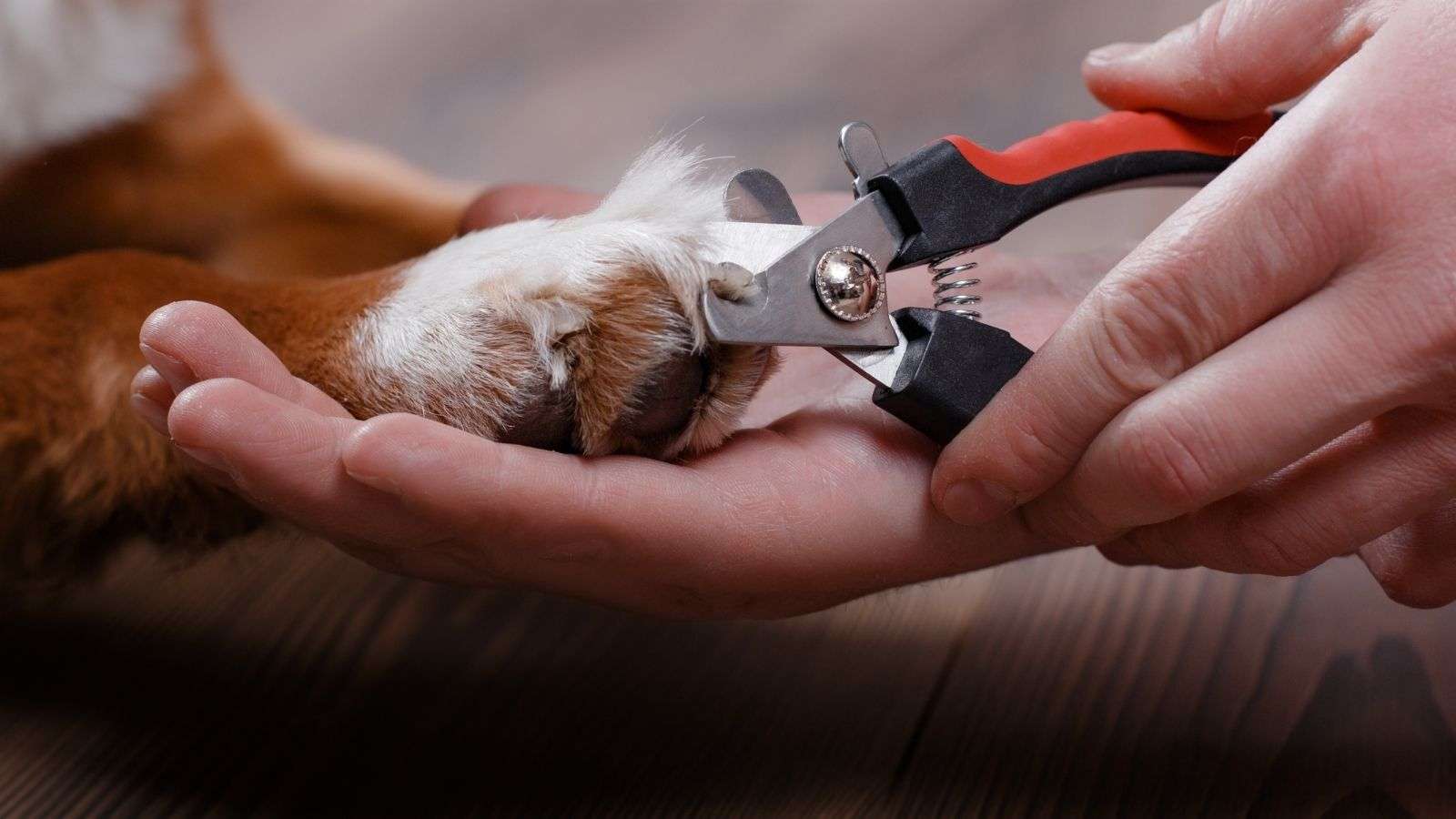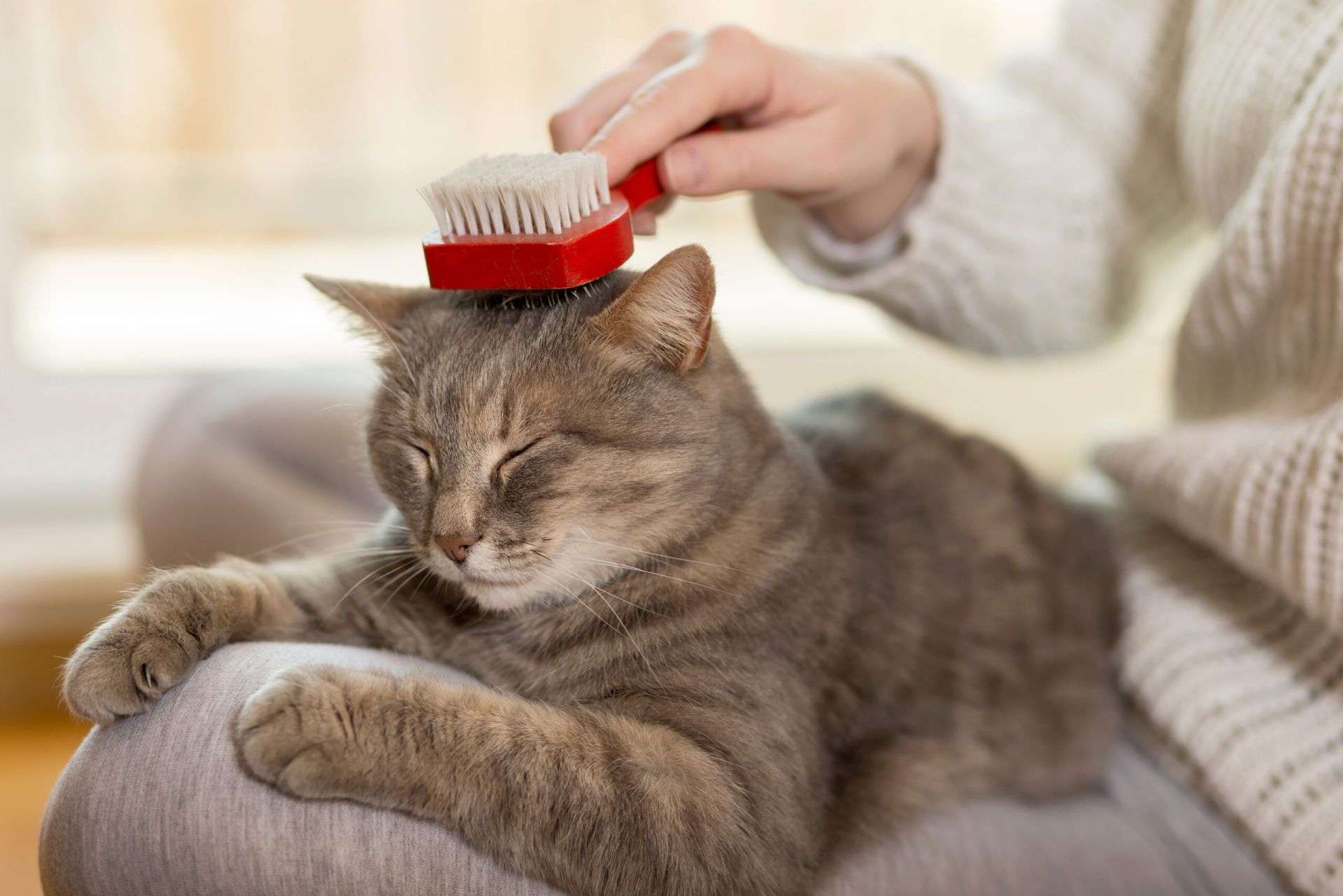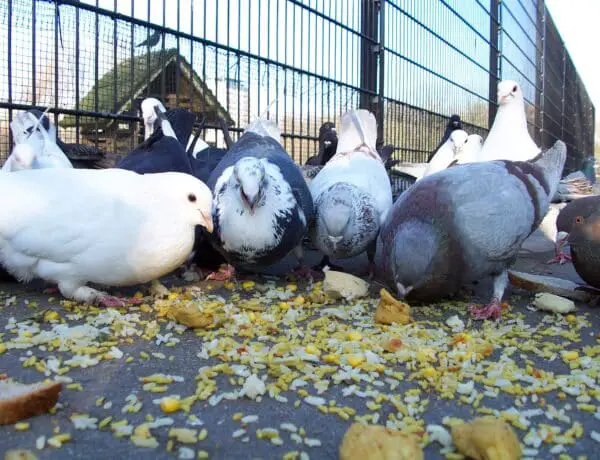Introduction
Grooming is an essential part of maintaining the health and well-being of our beloved pets. While it is commonly associated with dogs and cats, many pet owners wonder if small animals, such as rabbits, guinea pigs, and hamsters, also require grooming. The answer is yes, small animals do need grooming, although the extent and frequency may vary depending on the species and individual needs.
Small animals, just like their larger counterparts, can benefit from regular grooming for several reasons. Firstly, grooming helps to keep their fur or hair clean and free from tangles, mats, and debris. This is particularly important for long-haired small animals, as their fur can easily become matted and cause discomfort or even health issues. Secondly, grooming allows pet owners to inspect their small animals’ skin for any signs of irritation, parasites, or other skin conditions. Early detection of such issues can prevent them from worsening and ensure prompt treatment. Lastly, grooming provides an opportunity for bonding between the pet and its owner, as it involves gentle handling and interaction.

Why is grooming important for small animals?
With proper pet grooming, you will get rid of shedding, fleas, ticks, and various health conditions. Proper grooming is more than just having a cute pet. By grooming your pet, you will also be tackling potentially unhealthy conditions. It will also allow you to identify any underlying conditions or diseases early.
Grooming is an essential aspect of caring for small animals, such as rabbits, guinea pigs, and hamsters. It involves maintaining their fur, nails, teeth, and overall hygiene. While grooming may seem like a simple task, it plays a crucial role in the health and well-being of these animals.
Firstly, grooming helps to prevent the formation of mats and tangles in the fur. Small animals, especially those with long hair, are prone to developing mats, which can be uncomfortable and even painful for them. Regular brushing and combing remove loose hair and prevent the fur from becoming tangled. This not only keeps the animal’s coat looking neat and clean but also prevents skin irritations and infections that can occur when mats are left untreated.
Secondly, grooming helps to control shedding. Many small animals shed their fur regularly, and without proper grooming, their loose hair can accumulate and form clumps. These clumps can be ingested by the animal during grooming, leading to digestive issues. Regular brushing helps to remove loose hair and minimize shedding, keeping the animal’s coat healthy and reducing the risk of hairballs.
Thirdly, grooming allows for the early detection of health issues. During the grooming process, pet owners can closely examine their small animals for any signs of skin problems, parasites, or abnormalities. This includes checking for fleas, ticks, mites, or any redness, swelling, or sores on the skin. By regularly grooming their small animals, owners can catch these issues early on and seek appropriate veterinary care.
Furthermore, grooming helps to maintain the health of the animal’s nails and teeth. Small animals’ nails can grow long and sharp, causing discomfort and potential injury. Regular nail trimming ensures that the nails remain at a safe length. Similarly, dental care is crucial for small animals, as their teeth continuously grow. Regular brushing or providing appropriate chew toys helps to prevent dental problems and keeps their teeth in good condition.
Which animals need grooming?
Grooming is an important part of caring for your pet and keeping him or her healthy. Both cats and dogs need regular brushing, and animals with longer hair (e.g., , poodles, Yorkshire terriers) require frequent trips to a professional groomer. Fur that becomes matted can cause serious health issues for your pet.
Grooming is an essential part of maintaining the health and well-being of animals. While all animals require some level of grooming, certain species have specific grooming needs that must be met to ensure their overall health. These animals include dogs, cats, horses, and rabbits, among others.
Dogs are perhaps the most well-known animals that require grooming. Their fur can become tangled and matted if not regularly brushed, leading to discomfort and potential skin issues. Additionally, dogs often need their nails trimmed to prevent them from becoming too long and causing pain or difficulty walking. Some breeds also require regular haircuts to keep their coats at a manageable length.
Cats are also animals that benefit from grooming. While cats are known for their self-grooming abilities, they can still benefit from regular brushing to remove loose hair and prevent hairballs. Additionally, cats with long hair may require more frequent grooming to prevent matting and keep their coats healthy.
Horses are another animal that requires grooming. Regular grooming helps to keep a horse’s coat clean and healthy, as well as prevent skin issues such as rain rot or fungal infections. Grooming also allows horse owners to check for any injuries or abnormalities on their horse’s body.
Rabbits are often overlooked when it comes to grooming, but they too require regular care. Rabbits have delicate fur that can become matted if not brushed regularly. Additionally, rabbits need their nails trimmed to prevent them from becoming too long and causing discomfort or injury.
How do you take care of small animals?
The right small animal diet, a clean and dry habitat, fresh food and water, safe toys, and attention every day are important elements that will make your small animal happy and healthy. How often you clean your animal’s cage depends on the cage size and the number of animals living in the cage.
Small animals, such as hamsters, guinea pigs, and rabbits, require special care to ensure their health and well-being. Taking care of small animals involves providing them with a suitable habitat, a balanced diet, regular exercise, and proper grooming. Additionally, it is important to handle them gently and provide them with mental stimulation. By following these guidelines, you can ensure that your small animal remains happy and healthy.
Habitat: The first step in taking care of small animals is to provide them with a suitable habitat. This includes a cage or enclosure that is spacious enough for them to move around comfortably. The cage should be well-ventilated and escape-proof to prevent any accidents. It is also important to provide them with bedding material, such as wood shavings or paper-based bedding, to keep them comfortable and to absorb any waste.
Diet: Small animals have specific dietary requirements that need to be met in order to keep them healthy. It is important to provide them with a balanced diet that includes a variety of fresh fruits, vegetables, and high-quality pellets or hay. Avoid feeding them foods that are high in sugar or fat, as this can lead to obesity and other health problems. Additionally, make sure they have access to fresh water at all times.
Exercise: Regular exercise is essential for small animals to maintain their physical and mental well-being. Provide them with opportunities to explore and play outside of their cage, under supervision. You can also provide them with toys and tunnels inside their cage to keep them entertained and active. However, make sure to create a safe environment and remove any potential hazards.
Grooming: Small animals require regular grooming to keep their fur and nails in good condition. This includes brushing their fur to remove any tangles or mats and trimming their nails to prevent them from becoming too long. Additionally, some small animals, such as rabbits, may require regular dental care to prevent dental problems. Consult with a veterinarian to determine the specific grooming needs of your small animal.
Do ferrets need to be groomed?
Ferrets require regular bathing and nail trimming — pay attention to his ears, teeth, nails and coat. Warning: ferrets can often be uncooperative when it comes to receiving grooming help. Plan on a twice-monthly bathing by hand (rather than immersing your pet in water) using a ferret-specific or feline shampoo.
Yes, ferrets do need to be groomed regularly to maintain their overall health and well-being. Grooming is an essential part of ferret care and helps to prevent various health issues that can arise from poor hygiene. Ferrets have a unique coat that requires specific grooming techniques to keep it clean and in good condition.
Firstly, regular brushing is necessary to remove loose hair and prevent matting. Ferrets have a dense coat that sheds throughout the year, and if not brushed regularly, the loose hair can become tangled and form mats. These mats can be uncomfortable for the ferret and may even lead to skin irritation or infections. Therefore, regular brushing with a soft brush or a grooming glove is recommended to keep their coat clean and free from tangles.
Secondly, ferrets also need their nails trimmed regularly. Overgrown nails can cause discomfort and pain for the ferret, as well as increase the risk of injury. Trimming their nails every few weeks helps to prevent them from becoming too long and reduces the chances of scratching or snagging on objects. It is important to use proper nail clippers designed for small animals and to be cautious not to cut too close to the quick, which can cause bleeding.
How often should animals be groomed?
Most owners of cats or dogs with longer fur opt to take their pet to the groomers once every 4-6 weeks, while shorter-haired breeds may only visit every 8-12 weeks. You will also need to take into consideration the speed at which your pet’s claws grow.
Grooming is an essential part of maintaining the health and well-being of animals. It not only helps to keep their coat clean and free from tangles, but it also allows for early detection of any skin issues or parasites. However, the frequency at which animals should be groomed can vary depending on several factors.
The type of animal plays a significant role in determining how often grooming is necessary. Dogs, for example, typically require more frequent grooming compared to cats. This is because dogs have a thicker coat that is more prone to matting and tangling. On the other hand, cats are known for their self-grooming habits and may not require as much human intervention.
The breed of the animal is another important consideration. Certain breeds, such as poodles or bichon frises, have hair that continues to grow and requires regular trimming. These breeds may need grooming every 4-6 weeks to maintain their coat’s appearance and prevent it from becoming matted. Other breeds with shorter hair, like Labradors or Beagles, may only need grooming every few months.
The lifestyle of the animal also plays a role in determining grooming frequency. Outdoor animals, such as horses or farm animals, may require more frequent grooming due to exposure to dirt, mud, and other environmental factors. Indoor pets, on the other hand, may not need grooming as often since they are not exposed to the same elements.
The health of the animal is another factor to consider. Animals with certain skin conditions or allergies may require more frequent grooming to prevent irritation or infection. Additionally, older animals may need more regular grooming as their coat becomes thinner and more prone to matting.

What is the grooming routine for small animals?
Grooming small animals is an essential part of their overall care and well-being. The grooming routine for small animals typically involves several important steps. Firstly, it is important to regularly brush their fur or feathers to remove any tangles, mats, or debris. This helps to keep their coat clean and prevents the formation of painful knots. Additionally, brushing stimulates the skin and promotes healthy blood circulation.
In addition to brushing, small animals may also require regular nail trims. Overgrown nails can cause discomfort and even lead to injuries or infections. Trimming their nails helps to prevent these issues and keeps their feet in good condition. It is important to use proper nail clippers designed for small animals and to be cautious not to cut too close to the quick, which can cause bleeding.
Why is grooming important for small animals?
Grooming is an essential aspect of caring for small animals, as it helps maintain their overall health and well-being. Regular grooming not only keeps their fur or feathers clean and free from tangles, but it also allows for early detection of any skin issues or parasites. By regularly grooming small animals, owners can prevent the buildup of dirt, debris, and excess oils on their coats, which can lead to skin irritations and infections.
Grooming also provides an opportunity for owners to bond with their small animals. The act of grooming can be a calming and soothing experience for both the owner and the pet, promoting trust and strengthening the human-animal bond. Additionally, grooming sessions allow owners to check for any abnormalities or injuries on their small animals’ bodies, such as cuts, bruises, or lumps, which may require immediate veterinary attention.
Furthermore, grooming helps small animals regulate their body temperature. Some small animals, such as rabbits and guinea pigs, have dense fur that can easily become matted if not properly maintained. Matting can restrict airflow and insulation, leading to overheating or chilling. Regular brushing and grooming help prevent matting and ensure that small animals can effectively regulate their body temperature, especially during extreme weather conditions.
Are there any specific grooming needs for different types of small animals?
Yes, there are specific grooming needs for different types of small animals. Each species has its own unique requirements when it comes to grooming. For example, rabbits need regular brushing to prevent their fur from matting and to remove loose hair. They also require their nails to be trimmed regularly to prevent them from becoming overgrown and causing discomfort. Additionally, rabbits may need their teeth checked and trimmed if they become too long.
Similarly, guinea pigs also require regular brushing to keep their fur clean and free from tangles. Their nails should be trimmed regularly as well to prevent them from curling and causing pain. Guinea pigs also have special needs when it comes to their teeth, as they continuously grow throughout their lives and may need to be filed down to prevent dental issues.
How often should small animals be groomed?
Grooming frequency for small animals depends on the specific type of animal and its individual needs. Generally, small animals such as rabbits, guinea pigs, and hamsters require regular grooming to maintain their overall health and well-being. For these animals, it is recommended to groom them at least once a week.
During grooming sessions, it is important to check for any signs of illness or injury, such as skin irritations, parasites, or overgrown nails. Regular grooming also helps to prevent matting of fur, which can lead to discomfort and skin problems. Additionally, grooming provides an opportunity to bond with your small animal and monitor their overall condition.
However, it is important to note that some small animals, like mice or rats, may not require as frequent grooming as others. These animals are generally good self-groomers and may only need occasional assistance in maintaining their cleanliness. It is best to consult with a veterinarian or do research specific to your small animal’s needs to determine the appropriate grooming frequency.
What are the potential consequences of not grooming small animals regularly?
Grooming is an essential part of maintaining the health and well-being of small animals. Neglecting regular grooming can lead to a variety of potential consequences that can negatively impact their overall health and quality of life.
One potential consequence of not grooming small animals regularly is the development of skin issues. Without regular grooming, small animals can develop matted fur, which can trap dirt, debris, and even parasites. This can lead to skin irritation, itching, and even infections. Additionally, small animals with long fur, such as rabbits or guinea pigs, are prone to developing painful mats that can pull on their skin and cause discomfort.
Another consequence of not grooming small animals regularly is the increased risk of dental problems. Many small animals, such as hamsters or gerbils, have constantly growing teeth. Regular grooming, such as providing appropriate chew toys or dental treats, helps to wear down their teeth and prevent overgrowth. Without proper grooming, their teeth can become overgrown, leading to difficulty eating, pain, and potential dental infections.
Conclusion
When it comes to grooming, many people often think of dogs and cats. However, it is important to remember that small animals also require grooming to maintain their health and well-being. Whether it is a rabbit, guinea pig, hamster, or bird, these animals can benefit from regular grooming practices.
Small animals, just like dogs and cats, have specific grooming needs that should not be overlooked. One of the most important aspects of grooming for small animals is maintaining their fur or feathers. Regular brushing helps to remove dirt, debris, and loose hair, preventing matting and tangling. This is especially important for long-haired small animals, as their fur can easily become matted if not properly cared for. Additionally, grooming helps to distribute natural oils throughout the fur, keeping it healthy and shiny.
Grooming also provides an opportunity to check for any signs of illness or injury. During the grooming process, owners can inspect their small animals’ skin for any abnormalities such as redness, sores, or parasites. This allows for early detection and treatment of any potential health issues. Furthermore, grooming provides a bonding experience between the owner and the small animal. Regular handling and grooming help to build trust and strengthen the relationship between the two.



No Comments